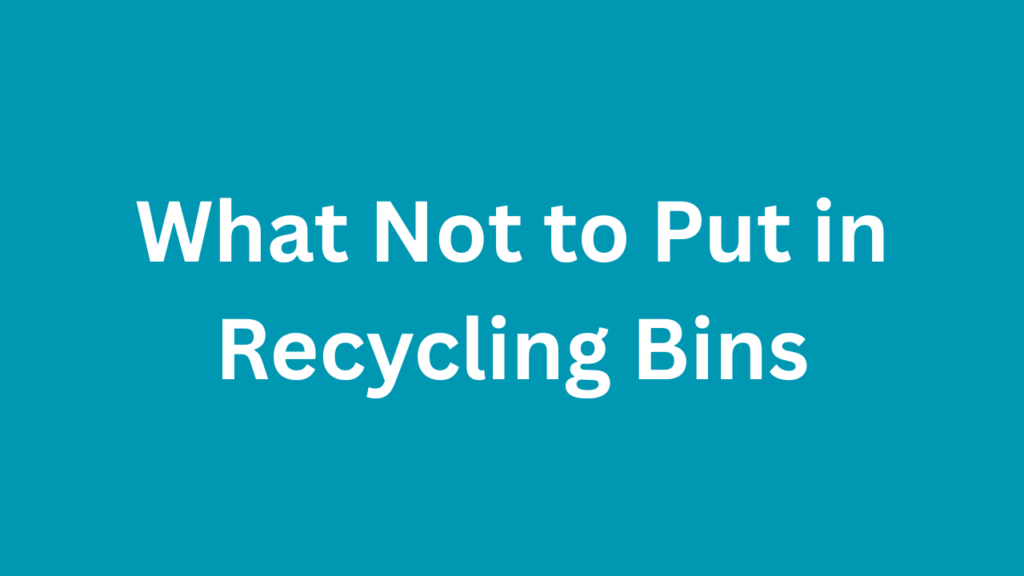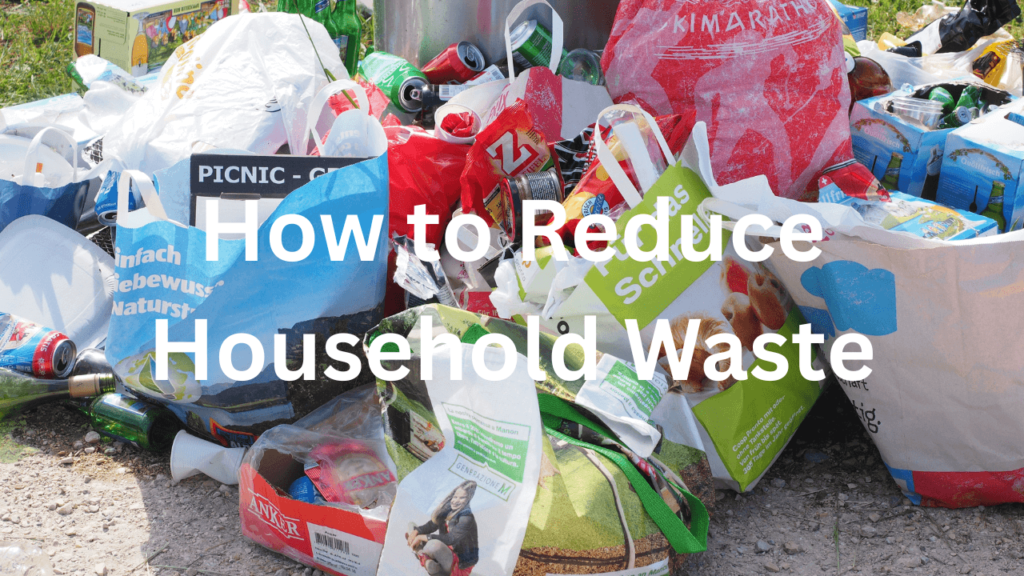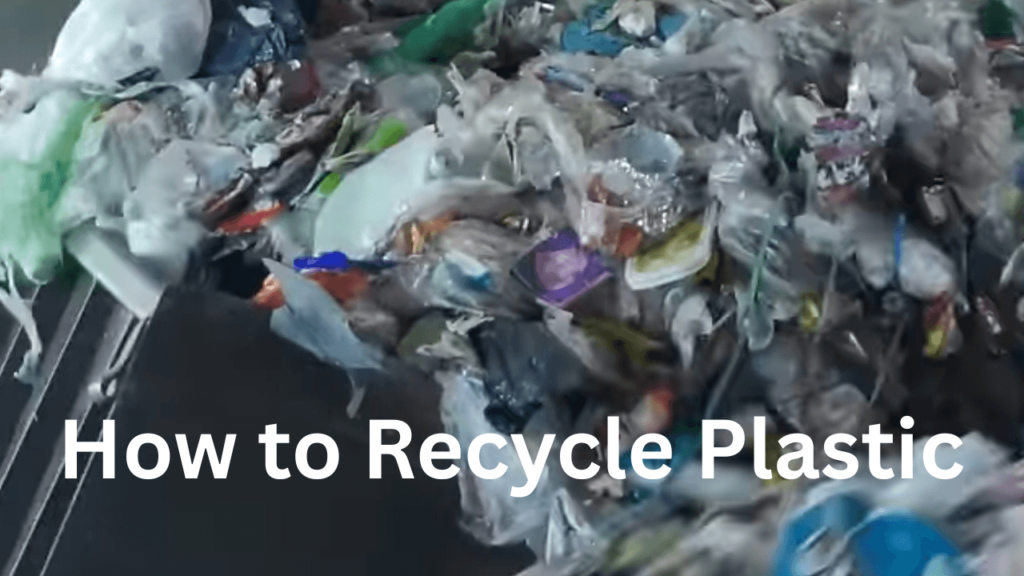Have you ever stood over your bin, holding something awkward like a greasy pizza box or a broken wine glass, wondering, “Can I recycle this?” You’re not alone. Many of us try to do the right thing, but without clear guidance, we can accidentally cause more harm than good. Knowing what not to put in recycling bins is just as important as knowing what goes in.
Recycling contamination is a major issue. When the wrong items end up in your green bin, entire batches of recyclables can be rejected and sent to landfill. In this guide, we’ll help you understand exactly what doesn’t belong in your recycling bin—and why. You’ll also learn how to properly dispose of tricky items and stay aligned with your local recycling guidelines.
👉 By the end of this post, you’ll recycle smarter, avoid costly mistakes, and do your part in protecting the planet.
Why It Matters: The Cost of Contaminated Recycling
Before diving into the list of items you should avoid putting in your recycling bin, it’s helpful to understand why proper sorting is so critical.
When non-recyclables mix with recyclables, they can:
- Damage recycling machinery
- Endanger waste management workers
- Cause entire recycling loads to be rejected
- Increase waste processing costs for your local council
- End up in landfills or incinerators despite best intentions
This is especially important in countries like Ireland, where household recycling contamination rates are still a concern. With new waste regulations and strict skip hire company guidelines, getting it wrong can also cost you money—through fines or rejected collections.
🚫 What Not to Put in Recycling Bins (with Explanations)
Let’s explore some common culprits that don’t belong in your household recycling bin.
1. Plastic Bags and Soft Plastics
Plastic bags and cling film are some of the most common contaminants.
- Why not? They jam sorting machines at recycling facilities.
- Proper disposal: Bring them to designated soft plastic collection points in supermarkets (e.g., Tesco or SuperValu in Ireland).
✅ Alternative: Reusable shopping bags or paper-based wraps.
2. Food-Soiled Containers
Greasy pizza boxes, yogurt tubs with leftover contents, or unwashed takeaway containers.
- Why not? Food residues contaminate paper/cardboard and attract pests.
- Proper disposal: Compost food waste and clean containers before recycling.
✅ Tip: A quick rinse is enough—no need to scrub thoroughly.
3. Glassware (Drinking Glasses, Mirrors, Pyrex)
Broken wine glasses or oven-proof dishes are not recyclable through curbside bins.
- Why not? They have different melting points than bottle glass and contaminate batches.
- Proper disposal: Take them to your local civic amenity centre or bring banks.
✅ Recycle glass bottles and jars only.
4. Electronics and Batteries
These items pose safety hazards in recycling trucks and facilities.
- Why not? They can cause fires and contain toxic materials.
- Proper disposal: Use WEEE (Waste Electrical and Electronic Equipment) drop-off points or return to retailers.
✅ Many Irish councils offer battery collection at libraries and schools.
5. Black Plastic Packaging
You might be surprised to learn that black plastic can be problematic.
- Why not? Optical sorters at recycling plants often can’t detect black pigments.
- Proper disposal: Reuse or put in general waste if no alternative exists.
✅ Look for packaging labeled as “widely recycled.”
6. Nappies/Diapers
Used nappies are not recyclable.
- Why not? They are contaminated with human waste.
- Proper disposal: General waste bin only.
✅ Consider reusable cloth nappies for a more eco-friendly option.
7. Textiles and Clothes
Old clothes don’t belong in your recycling bin, even if they’re ripped.
- Why not? Fabric tangles machinery and isn’t recyclable via regular systems.
- Proper disposal: Donate wearable items or use textile collection banks.
✅ In Cork, the City Council partners with clothing banks for donations.
8. Garden Waste and Soil
Leaves, grass clippings, and soil shouldn’t be tossed in the recycling.
- Why not? They contaminate paper/cardboard and attract vermin.
- Proper disposal: Use your brown bin or a home compost system.
✅ Many councils offer green waste pickup services.
9. Shredded Paper
Seems recyclable, right? Not so fast.
- Why not? Pieces are too small to sort properly and often end up in landfill.
- Proper disposal: Compost or put in the brown bin.
✅ If needed, bag in a paper bag before placing in brown bin (check your local guidelines).
10. Ceramics and Pottery
Mugs, plates, and vases can’t be recycled like glass bottles.
- Why not? Their material structure differs from recyclable glass.
- Proper disposal: Drop off at civic amenity sites.
✅ Donate undamaged items to charity shops.
♻️ What Can You Put in Your Recycling Bin?
To clarify, here’s a short list of items typically accepted in household recycling bins in Ireland:
- Clean plastic bottles, tubs, and trays
- Tins and cans
- Paper and cardboard (clean/dry)
- Milk and juice cartons
- Glass bottles and jars (check local scheme)
FAQ: What Not to Put in Recycling Bins
Can I recycle pizza boxes?
Only if they’re clean and free from grease. Greasy parts should go in the brown bin (compost) or general waste.
Are coffee cups recyclable?
Most disposable coffee cups have a plastic lining, making them non-recyclable. Some cafes offer compostable versions—check the label.
What happens if I put the wrong items in my recycling bin?
Your bin may be tagged and left uncollected, or the load may be diverted to landfill. Repeated contamination can lead to fines in some counties.
Can I put batteries in the recycling bin?
No. Batteries can cause fires in trucks and facilities. Use dedicated collection boxes at retailers or local libraries.
Is bubble wrap recyclable?
Not in your home bin. Reuse it or bring to a soft plastics collection point.
🌱 Final Thoughts: Recycle Smarter, Waste Less
Recycling is a simple but powerful way to protect our environment—but only if we do it right. By avoiding the top items not to put in recycling bins, you’re helping to:
- Keep recycling facilities efficient
- Reduce landfill overflow
- Protect waste workers
- Support a more sustainable future



